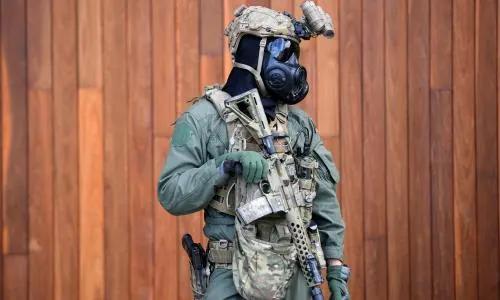Human rights groups say revelations that Australia sat on its hands after learning of Indonesian military atrocities against West Papuan demonstrators are “deeply disturbing” and should prompt an independent investigation.
A newly released unredacted intelligence report, shared with the Guardian, shows the Australian government had compelling evidence that the Indonesian military fired live rounds indiscriminately into a group of unarmed West Papuan demonstrators on the island of Biak on 06 July 1998.
Despite consistent calls for an independent investigation into the Biak massacre, Australia did not share its evidence with the world.
The intelligence report also shows West Papuans secretly handed an Australian intelligence officer photographic evidence of the atrocity, at great risk to their own safety. The film was distributed to defence, but never saw the light of day. It appears to have been destroyed in 2014.
Human Rights Watch said the new revelations were “deeply disturbing”.
Elaine Pearson, the organisation’s Australia director, said it was clear that an independent investigation was needed into the massacre, what foreign governments knew about the atrocity, and the handling of evidence.
“If Defence destroyed photographic evidence of alleged abuses then that is unconscionable and there should be a thorough review of the policy as to how evidence of human rights violations is handled,” Pearson said. “Any evidence of alleged massacres should be collected and preserved. Why wasn’t it sent to the UN Human Rights Office if Australia was not going to act on it?”
An investigation into the massacre could be conducted by the UN Human Rights Office, while parliamentary inquiries could probe the Australian government’s response and its handling of evidence.
The Indonesian government has either denied or downplayed the Biak massacre, initially blaming a tsunami 1,000km away when mutilated corpses began washing up on the island’s shores.
Australia offered only a muted response to reports of violence against the West Papuan activists gathered on Biak that day, expressing concern but never issuing outright condemnation or calling for a United Nations investigation. The newly released intelligence report, compiled by a military attache dispatched to the island five days after the attack, shows the government has had serious evidence of the atrocity for 23 years.
The report was released by the National Archives of Australia following action in the Administrative Appeals Tribunal by campaigner Anthony Craig and law firm Xenophon Davis.
The officer who authored it, Dan Weadon, shared evidence from witnesses who saw “lots of blood and dead bodies” and knew “of at least 20 people who were killed. Approximately 200 of the demonstrators (the rest were dead or wounded) were then rounded up.”
It concluded it was highly likely that Indonesian troops had used excessive force on the demonstrators, later cleaning up the site and intimidating witnesses.
Later testimony from survivors has suggested a far higher number of deaths. Survivors have also spoken of witnessing West Papuans taken to navy vessels on Biak’s harbour, where they were allegedly murdered, raped, tortured, and thrown overboard.
The West Papua region has long been off-limits to journalists and human rights observers. But in 2018 president Joko Widodo promised the United Nations High Commissioner of Human Rights that he would be allowed to visit. That visit has still not been permitted and the UN Human Rights Office still has no access to the region.
Pearson said Australia should “urge Indonesia to follow through on Jokowi’s promise in 2018”.
“For more than 50 years, Indonesia has tightly restricted access to Papua and West Papua for foreign journalists and human rights monitors making it very difficult to investigate allegations of serious human rights abuses,” she said. “There are numerous reports of killings, torture, arbitrary detention and forced displacement for which no one has ever been held to account.”
The defence department told the Guardian on Friday that its handling of records was governed by the Archives Act and that they are subject to routine review and disposal.
The department of foreign affairs and trade has always maintained that it took steps to raise the Biak massacre with the Indonesian governments, including at the ministerial level….
SOURCE: THE GUARDIAN/PACNEWS













